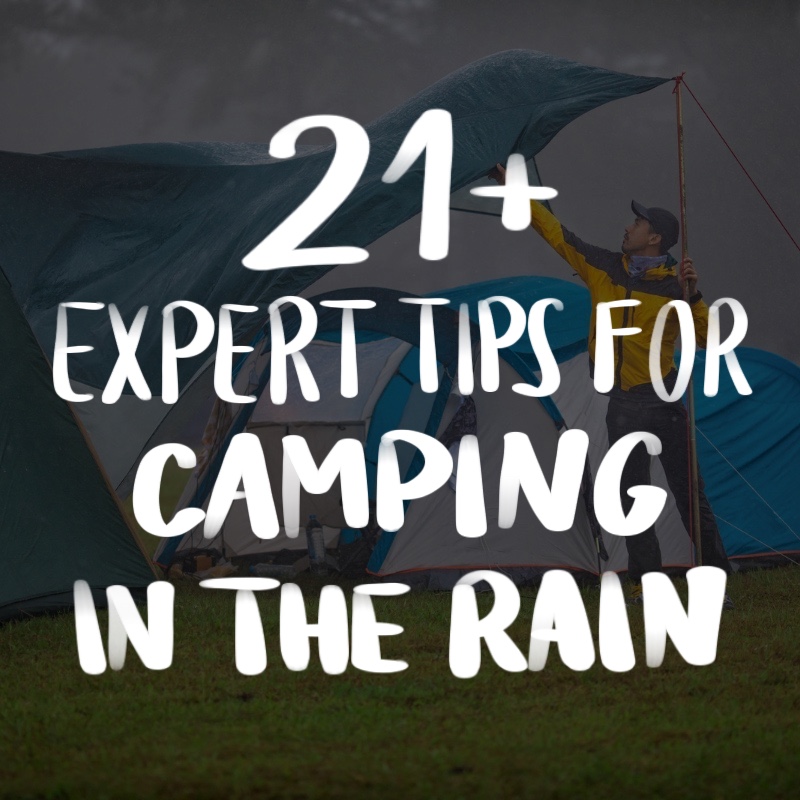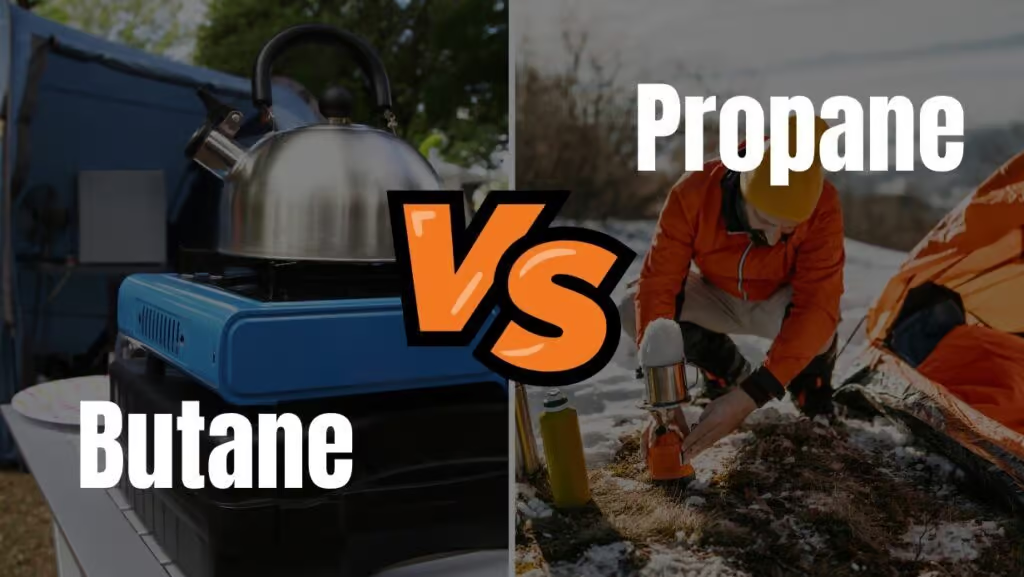
Want to buy a camp stove but don’t know which one is the best for you?
You’ve heard about butane vs. propane and need to know the best option. We got you covered!
In this article, you will find out everything you need.
We will compare the pros and cons of both stoves and fuels, discuss the differences in their performance, and guide you in making the best purchase choice.
I must explain the two main fuel types to decide which camping stove to buy.
Butane or propane?
Let’s find out!
Table of Contents
Butane Vs Propane Camp Stove – Differences
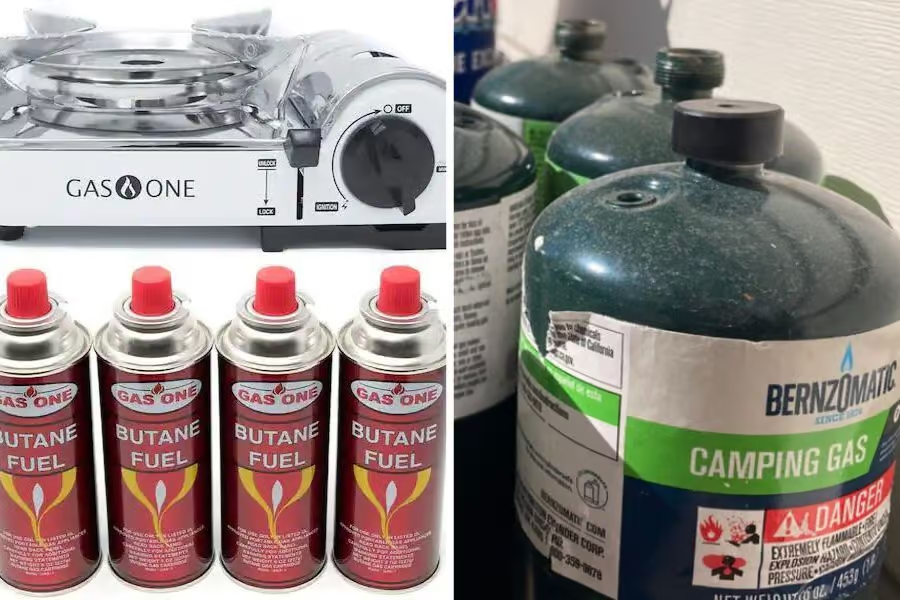
First, butane and propane are hydrocarbon gases derived from fossil fuels.
Before we explain the butane vs propane camp stove differences and their characteristics in more detail, we will briefly examine their primary performance.
Butane is a saturated hydrocarbon with four carbon atoms, while propane is an unsaturated hydrocarbon with three carbon atoms.
It has a higher energy content than propane, so it burns hotter and faster, but it is less volatile than propane, making it more suitable for grills and stoves.
Propane is more commonly used in home and industrial appliances because it has a higher boiling point, making it less likely to evaporate.
The main difference between the two gases is their respective boiling points. Butane has a boiling point of -0.5°C (31°F), while propane has a boiling point of -42°C (-44°F). This difference in boiling point proves that butane is easier to vaporize and can be used at colder temperatures than propane.
Butane Vs Propane Camp Stove – Features
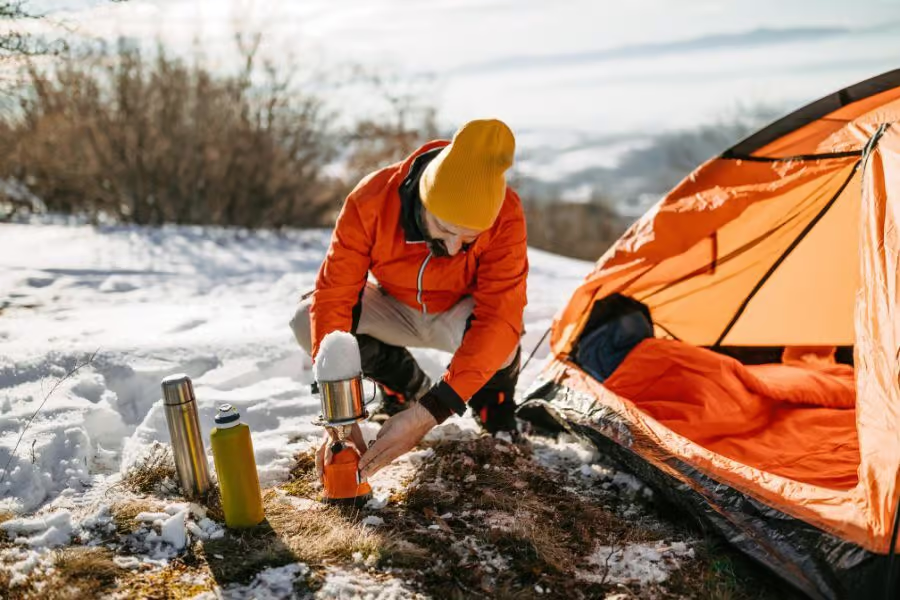
Unlike grilling in your backyard, cooking on a camping stove differs.
You must consider many factors, like temperature, weight, safety, fueling capability, payload, etc.
For the ultimate comparison, we’ll look at the features of these popular fuels to help you decide which is better for a camping trip.
Here are the criteria that are important for determining a good camping stove:
- Temperature
- Weight
- Safety
- Longevity
- Compatibility
- Availability
- Sustainability
- Energy density
- Cost
Butane Vs Propane Camp Stove – Temperature
Temperature is an essential criterion for determining the quality of butane and propane stoves.
The higher temperature allows the stove to produce high-quality heat, and it’s known for its burn efficiency. Adjusting the temperature for efficient combustion creates the desired heat output.
Most importantly, temperature monitoring ensures the furnace doesn’t emit dangerous particles.
However, you must ensure that camping fuel works in all temperature ranges.
| Butane | Propane |
| Butane has a flash point of 30.2°F (-1°C). If you camp in the winter below that temperature, your butane canister won’t work because the butane gas will turn into liquid fuel inside the canister. So, butane is good if you are camping in the summer. | Propane has a boiling point of -43.6°F (-42°C). Your propane tank will have propane gas above that temperature. It is considered an ideal camping fuel all year round. |
Butane Vs Propane Camp Stove – Weight
Weight is an important criterion when it comes to camping stoves, as it can make a big difference in the portability of the stove.
A lightweight camping stove is easier to carry and transport, making it a great car camping option. Also, the lighter the stove, the less fuel it will need, making it more efficient and cost-effective.
| Butane | Propane |
| Butane doesn’t require ample space or high storage pressure, so it is ideal for thin aluminum canisters that are very light to carry | To store propane, you must compress it to turn it into a liquid. This creates the pressure required for a solid stainless steel cylinder. That’s why the propane bottles are pretty heavy. |
Butane Vs Propane Camp Stove – Safety
Both fuel types are safe if you use them correctly. Although the materials are flammable, improper handling or storage can lead to consequences.
To prevent any problem, you should store propane and butane canisters in a dry and dark place, i.e., away from sunlight.
Because butane or propane stoves can produce harmful gases, you should use them in a ventilated area.
Here is the fundamental difference between these two types of fuel regarding safety.
| Butane | Propane |
| Butane stoves can be safer because they don’t have an open flame. However, this camping fuel type is heavier than air, so you can’t detect it by sight or smell, which can be dangerous in rescue times. When purchasing a butane camp stove, please pay attention to whether it has adequate ventilation and is installed according to the manufacturer’s instructions. | It’s a fuel type lighter than air, so you can smell it and detect it if it starts leaking. Also, there’s a valve to reduce the pressure in the tank. If the high-pressure increases, the valve will open and release excess tension preventing an explosion. |
Butane Vs Propane Camp Stove – Longevity
Longevity is important when considering the quality of propane and butane fuel stoves, such as valves or insulation. If they are of better quality, your camp stove will last longer. And not only that, the fuel will burn longer, more efficiently, and at a higher temperature.
The quality of the materials, such as stainless steel and aluminum, can also affect the longevity of the stove. High-quality stoves made of durable materials that can withstand the heat and pressure of the fuel will last longer.
| Butane | Propane |
| A butane stove is a good choice if you’re looking for maximum burn time, as it provides more energy per volume, meaning you can cook longer with less fuel. A canister of butane camping fuel lasts longer than propane, so you don’t have to refill it as often. | Some features, such as solid metal frames, ceramic-coated burners, and rust-resistant parts, can help extend the life of a propane stove. In addition, you should regularly check, clean, and maintain your propane furnace to extend its life. |
Butane Vs Propane Camp Stove – Compatibility
Propane camping stoves are compatible with standard propane tanks and are usually easy to set up and use. They are usually more potent than butane stoves and can heat up quickly.
Butane camping stoves are often smaller and lighter than propane stoves, making them ideal for backpacking.
Butane stoves are also usually compatible with butane canisters, which are more readily available than propane tanks.
Butane stoves are less potent than propane stoves and may take longer to heat up.
Overall, both camping stoves are compatible with their fuel, and the choice depends mainly on your preference.
Butane Vs Propane Camp Stove – Cost
In most cases, the higher the cost, the higher the quality of the camp stove. Lower-quality components and a lack of furnace elements can reduce efficiency and failure.
For example, the absence of vents to help regulate the flow of air and fuel can cause a weak and uneven flame. Similarly, the insulation may need improvement, so the camp stove will be slow to heat up or cool down.
On the other hand, more expensive models can have accessories such as wind guards or flame regulators to improve the usability of the camp stove.
| Butane | Propane |
| Butane is more expensive and a bit more specialized. | It is a much cheaper fuel than butane and is widely available in stores |
The cost difference between propane and butane depends on the country and current market prices. Propane tends to be more expensive than butane due to higher demand.
Butane Vs Propane Camp Stove – Availability
One of the differences between this butane and propane is fuel availability.
| Butane | Propane |
| Butane is less widely available. You can only buy it from specialty stores like camping, gas stations, etc. | Propane is much more readily available than butane, as you can find it in grocery stores, gas stations, and sporting goods stores |
Kerosene is a flammable hydrocarbon liquid fuel that is commonly used as fuel for heating and lighting. It is widely available at hardware stores. Another fuel type, white gas, isn’t available in stores but can be ordered online and used in camping stoves.
Butane Vs Propane Camp Stove – Sustainability
A sustainable camp stove is of better quality. It will produce fewer pollutants and other harmful substances and use less fuel in the long run.
To buy a sustainable camp stove, you should consider energy consumption.
Material can play an important role. For example, material that can be recycled, reused, or renewed will reduce the amount of waste.
| Butane | Propane |
| When butane burns, it produces carbon dioxide and other pollutants | Propane furnaces are not that sustainable when considering the energy source. The point is to use renewable energy sources such as solar, wind, and hydro. |
Butane Vs Propane Camp Stove – Energy Density
There is a significant difference between butane and propane stoves regarding energy density.
| Butane | Propane |
| This fuel type has a much lower energy density than propane and is, therefore, not as efficient at producing heat | Propane has a much higher energy density than butane, which can provide more heat energy per unit weight. This way, it can produce a higher flame output than butane and offer more heat. |
How To Use a Butane Stove?
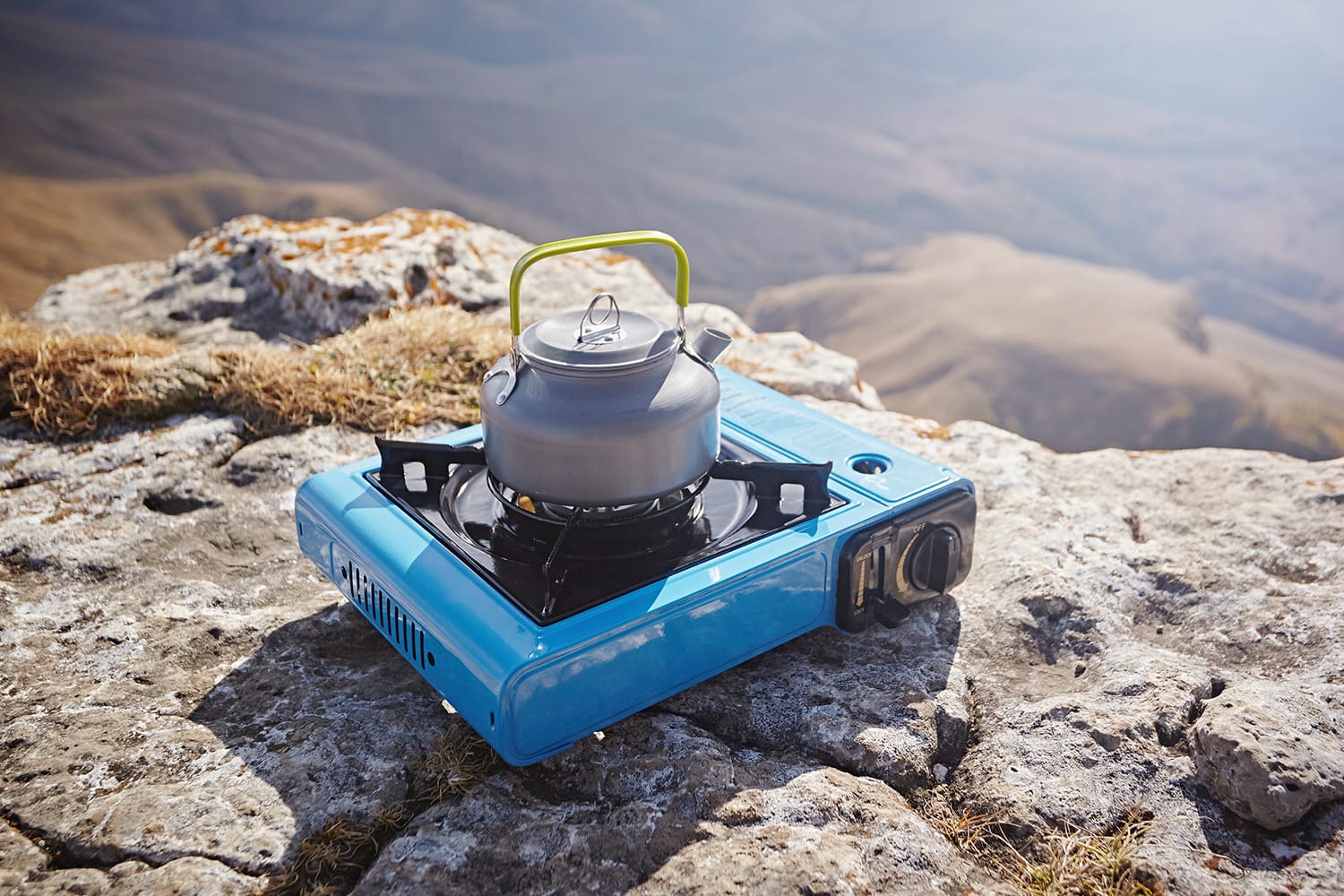
Butane stoves are easy to use and are a great way to save fuel when cooking outdoors. That’s why knowing how to use a stove to quickly prepare food and drinks and make your camping experience more enjoyable is essential.
Here are the steps for using a butane camp stove:
- Place the butane stove on a stable surface and in a ventilated area
- Ensure that the stove is away from any flammable material
- Place the pot or pan on the hob
- Turn on the stove fuel valve on the butane stove
- Set the desired heat level.
- When done cooking, turn off the fuel valve and let the stove cool down.
- Turn off the gas valve and disconnect the gas canister when the stove has cooled.
- Store the butane canister in a cool, dry place.
How To Use a Propane Stove?
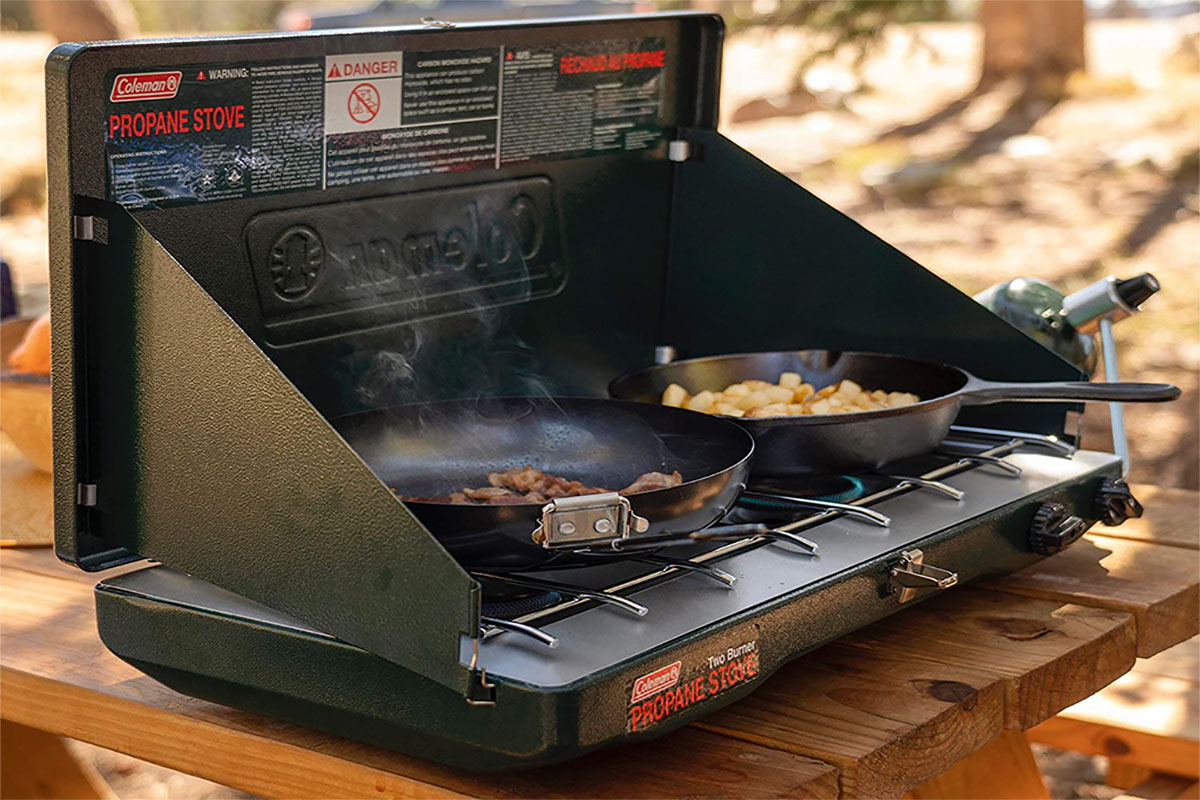
Ensure your propane stove can provide an efficient way to cook food or heat water.
In addition, knowing how to use a stove in emergencies when other heat and light sources are unavailable can be very useful.
Here are the steps for using a propane stove:
- Make sure the propane tank is full and close the valve
- Connect the propane tank to the stove using a connecting hose
- Turn on the propane tank valve
- Open the furnace control valve and light the burner
- Adjust the flame size to the desired level.
- Start cooking
- When finished, turn off the control valve
- Separate the tank from the stove and store it in a safe place
Butane And Propane Alternatives: Iso-Propane And Isobutane
Iso-propane and isobutane are the two most common alternatives to propane and butane. Both of these gases are from natural gas.
Iso-propane is a hydrocarbon gas similar to traditional propane but with a higher flash point and lower vapor pressure.
Iso-Propane is more expensive than propane but can be safer and more efficient.
Isobutane is an isomer of butane and has a lower vapor pressure and a higher flash point than traditional butane, making it a safer option.
Isobutane is popular because it doesn’t evaporate quickly in cold weather.
Apart from this, you should also be familiar with hybrid stove fuels as an excellent solution to the problem of butane and propane. Since there is no efficient way to store butane, most hybrid fuels are mixtures of butane and propane.
There are different camping fuels. A liquid fuel stove is usually powered by refined white gas, which is more efficient at providing a flame at cold temperatures. Liquid fuel camp stoves are available in canister form and can be filled with butane or propane.
Let’s explain the white gas in more detail.
White Gas
Another type of fuel popular for camping or backpacking trip is white gas.
White gas is a highly refined petroleum fuel, a colorless and odorless liquid known as Coleman fuel or kerosene.
Given its high-energy content, it is a preferred choice for outdoor enthusiasts.
Why exactly?
White gas is a non-toxic, non-explosive fuel source that is easy to use and store. Also, it is non-corrosive, which means it won’t damage the stove. It is relatively inexpensive and widely available.
However, when using white gas, it is essential to take certain precautions. Since it is a flammable fuel, you should always keep it in well-ventilated areas. Storing it in hot temperatures is not recommended, as it is highly volatile and can cause an explosion if not handled properly.
But don’t worry. White gas is an excellent choice for outdoor cooking if you use it properly.
Canister Or Liquid Fuel Stoves?
A fuel canister is a form of fuel stored in a pressurized container. It is used for camping trips and various outdoor activities. Butane and propane canisters are usually made of steel or aluminum.
Liquid fuel is a petroleum product such as gasoline or diesel used to power vehicles and other machinery. Even jet fuel is derived from crude oil, the common name for liquid petroleum gas.
Which one is better? Liquid fuel stove or canister? It depends on your needs. Canisters are more practical and easier to store, while liquid fuel is more powerful and cost-effective.
FAQ
What will you use your camping stove for?
You can use your camping stove for various purposes, from cooking meals, making tea or coffee, and heating water for washing dishes. With this camping gear, you will have a unique camping style.
Can I use propane in a butane stove?
You can’t use propane in a butane stove. Propane and butane fuel are different types of stove fuel and require other camp stoves.
Which is better: butane or propane?
Propane fuel is usually better than butane fuel because it has a higher energy density, meaning more energy per unit volume.
It is cheaper than butane camping stove fuel.
Propane produces more heat than butane and burns more efficiently.
Both camping stove fuels have no negative impact on the environment.
Which is safer – butane or propane?
Propane is safer for outdoor activities, while pure butane is better for indoor use. Propane has a higher flash point.
Can I use LPG in my propane stove?
Most LPG appliances are certified for what is known as ‘universal LPG,’ meaning you can use them with propane and butane.
Always follow the manufacturer’s instructions when using LPG in any appliance.
What are other stove types?
1. Gas camp stoves are the most common type of stove. They are usually powered by natural gas, although some may also use propane. Gas stoves are easy to use and typically inexpensive.
2. Electric camp stoves use electricity to heat the elements that transfer heat to the dishes. They are more expensive than gas stoves but are cleaner and more efficient.
3. Wood camp stoves are the oldest and most popular. Wood stoves usually produce more heat than gas or electric stoves but are more expensive. They are fueled by wood, giving the food a unique smoky flavor.
4. Similar in appearance and design, you can check multi-fuel stoves.
What are butane, propane, and isobutane cold tolerance?
The main difference between these gas fuels is their resistance to cold.
Propane is the least resistant to cold, with its vapor pressure falling below its liquid form at -44°F (-42°C).
It means that at lower temperatures than this, propane won’t vaporize, making it unsuitable for use in colder temperatures.
Isobutane has a much higher cold resistance than propane, with the vapor pressure dropping below its liquid form to -105°F (-76°C). It makes it more suitable for use in cold climates.
Butane has the highest cold tolerance, with the vapor pressure dropping below its liquid form at -147°F (-101°C). It is ideal for freezing temperatures as it can remain fluid and evaporate quickly at lower temperatures.
Is butane safer than propane indoors?
Propane and butane are flammable gases, so you should handle them carefully indoors, use them in well-ventilated areas, and follow the manufacturer’s instructions for safe use.
Do propane and butane stoves give off carbon monoxide?
Carbon monoxide is a colorless, odorless, and poisonous gas that fuel-burning appliances and engines, such as stoves, water heaters, furnaces, and car engines, can produce.
Butane and propane stoves can release this gas if not used properly. If the gas stove is not adequately ventilated, it can produce serious consequences.
What’s Your Choice?
Which camping stove you use depends primarily on your needs.
We’ve provided you with essential information about propane and butane stoves, so you can judge which is best for your camping.
Propane is usually more popular with campers because of its cold-weather performance and reliability. But again, it depends on what period of the year you plan to camp.
All in all, if you plan to cook, a camping stove is an essential item.
Oh, and when you finally decide, it’s time to check our great range of blog posts about camping breakfast, lunch, and dinner recipes, as well as camping snack ideas.
What do you think about this article? Feel free to write your thoughts, experience, and some fun stories in the comments. We would like to hear from you! Thank you
-
Milica is a nature lover and explorer of the great outdoors. She is always up for the challenge, whether camping, hiking, kayaking, or cycling. For her, exploring nature is a great way to connect with the environment around us and meet new people along the way. She always looks for the next journey and loves sharing her experiences with others. Besides, she loves writing and thus creates exciting stories based on personal experience.
View all posts




